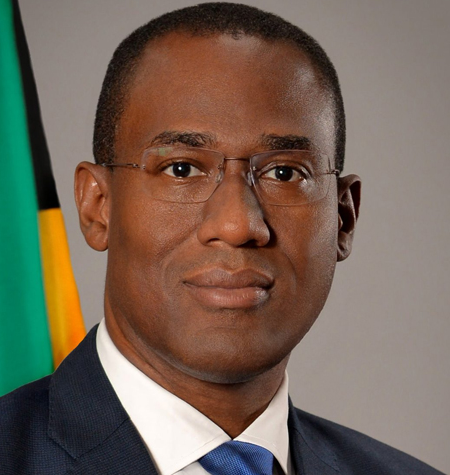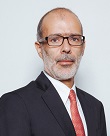Thursday, Oct 12, 2023 | 03:00 PM - 03:30 PM
Location: AB02 Irhoud
REPORT
Blurb:
How has Jamaica made impressive progress in terms of consolidating public finances and fostering economic growth over the last few years, also in light of climate challenges? Commitment to macroeconomic stability and program buy-in is key. The Resilience and Sustainability Facility, along with home-grown reform measures, play a key role in helping increase resilience to climate change.
Key Points:
Achieving macroeconomic stabilization. Jamaica’s commitment to sound policies, including fiscal prudence, has helped the country support sustainable economic growth and lower public debt. Although stabilization efforts involve trade-offs, they lead to longer periods of economic growth that pave the way for economic development. Jamaica has been an example of strong ownership of the reform agenda, translating Jamaican peoples’ goals into actionable, implementable steps.
Quotes:
“With the stabilization effort, though it involves trade-offs, though it involves compression, what comes with it is less volatility and longer periods of growth. It [stabilization] elongates the economic cycle and gives us a greater chance for economic development.” Nigel Clarke
“One thing that is true across all democracies is that policies will continue if they have domestic support.” Nigel Clarke
Contributor: Aga Urbanowska
OVERVIEW
Public Debt and Jamaica Climate Agenda
A conversation between Jamaica Minister of Finance Nigel Clarke and IMF Western Hemisphere Director Rodrigo Valdes.
Minister of Finance Nigel Clarke and IMF Western Hemisphere Director Rodrigo Valdes will discuss Jamaica’s experience addressing debt challenges and embracing an ambitious agenda to address the climate change.
Over the last years, Jamaica has built a strong track record of investing in institutions and prioritizing macroeconomic stability. At the core of its policy strategy there was a steadfast commitment to consolidate public debt in order to reduce vulnerabilities that would hinder Jamaica’s growth prospects over the medium term. The building of sound fiscal frameworks, a commitment to fiscal prudence, and a nimble and pragmatic policy response to recent global shocks were critical to achieve these goals. In this context, supported by the Fund Resilience and Sustainability Facility, Jamaica has recently embarked in a very ambitious agenda to address challenges from climate change through deep institutional reforms that can catalyze the needed financing to accelerate the transition to renewable power generation, increase resilience to climate change, enhance the climate focus in fiscal policy frameworks, and strengthen management of climate risks.
SPEAKER

Nigel Clarke
Minister of Finance and Public Service of Jamaica
The Hon. Nigel Clarke, DPhil., MP, is Jamaica’s Minister of Finance and the Public Service and is Member of Parliament for St Andrew Northwestern.
He has served as Ambassador of Economic Affairs where he represented Jamaica’s interests with multilateral institutions and as a Senator in the Upper House of the Jamaican Parliament between 2013 and 2015.
Minister Clarke’s public sector career includes service, over various periods, as Chairman of the National Housing Trust, Chairman of the Port Authority of Jamaica, Chairman of the HEART Trust and Director of the Bank of Jamaica.
Minister Clarke served as Vice Chairman of the Musson Group where, over 15 years, he played an integral executive leadership role in the expansion of the group from a base in Jamaica to having subsidiaries in over 30 countries.
In his private sector career, Dr. Clarke is recognized for having led, managed or executed dozens of acquisitions and corporate transactions, primarily in the Caribbean and Central America but also in Europe and the Pacific, and for his expertise in structuring and negotiating large scale in-bound equity and debt investments from major global institutions.
Dr. Clarke has been Chairman, Vice Chairman or director of many companies listed on the Jamaica Stock Exchange and his private sector experience spans broad areas of the economy including manufacturing, distribution, consumer goods, telecom services, agriculture, food processing, banking, insurance, property development among other areas.
Minister Clarke has also been an active social entrepreneur where he is the founding Chairman of the National Youth Orchestra of Jamaica, an NGO that operates music for social change programs at eight centres in Kingston and Spanish Town.
Minister Clarke is a recipient of the PSOJ’s “50 Under 50 Business Leader Award” as well as the Kiwanis Community Service Award.
MODERATOR

Rodrigo Valdes
Director of the Western Hemisphere Department, IMF
Rodrigo Valdés is a Chilean economist and Director of the Western Hemisphere Department at the IMF since May 2023. He previously served as a Professor of Economics at the Catholic University of Chile and as Chile's Minister of Finance from 2015 to 2017. Valdés also held leading positions at the Ministry of Finance and the Central Bank, including Director of Research and Chief Economist. He has also served as a Deputy Director of the Western Hemisphere and European Departments at the IMF. He has worked in the banking sector as Board and Executive Committee President at Banco Estado, Chile’s sole state-owned bank, as Director and Chief Economist for Latin America at Barclays Capital and Chief Economist(ex-Brazil) at BTG Pactual. Valdés holds a Ph.D. in Economics from MIT and a B.A. in Economics from the University of Chile.